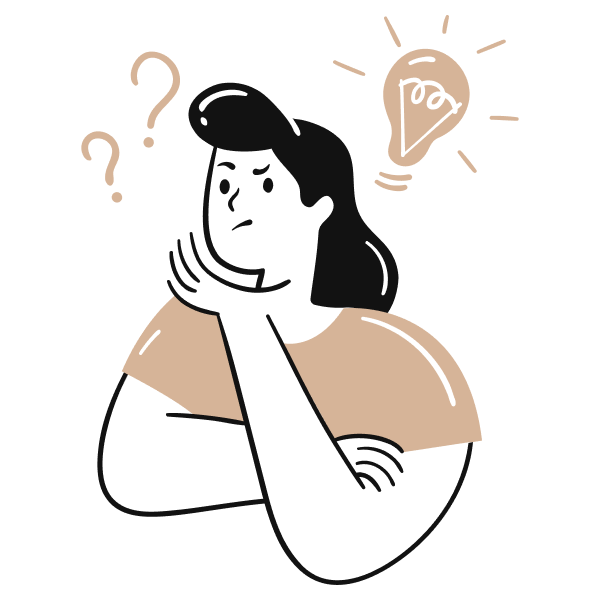Everyone has a day when your concentration is lacking and you are distracted by the slightest thing. Or one of those days when you feel energetic and take impulsive actions. After all, you’re human and every person shoots out to the left or right from time to time. These outliers are part of life. In fact, you could even say that these outliers color life. These periods when your focus is lacking or you have a lot of energy can be quite challenging for you. That doesn’t mean you are “deviating” or that there is more to it.
Help from a psychologist is often not necessary
What is ADHD?
ADHD stands for Attention-Deficit Hyperactivity Disorder and falls within the category of neurobiological developmental disorder. Quite a mouthful. The bottom line is that someone with ADHD has persistent difficulty keeping attention anywhere (attention problems) and/or is often hyperactive and impulsive. Combined or not. Character traits that can occur in childhood.
ADHD is diagnosed through a comprehensive diagnostic examination that looks at different characteristics. And the effect these have on your daily life. In many cases, ADHD is diagnosed at a younger age.
It is important to understand that not everyone who suffers from concentration problems or is busy in the head has ADHD. For example, concentration problems can also be the result of stress, a busy period when a lot is asked of you or something you have experienced in the past.
When you look for help, psychologists always look first at other factors that may explain your symptoms. In most cases, attention and concentration problems do not stem from ADHD. Only when these other causes have been ruled out will extensive research into ADHD be done. We speak of ADHD when the symptoms are continuously present for a longer period of time and interfere with your daily life.
What are the symptoms of ADHD?
ADHD manifests itself in different ways. The cliché image of a busy and unfocused person is by no means always true. Even someone who is more calm, introverted or quiet can have ADHD. However, a large proportion of people with ADHD are very active, busy in the head and sensitive to external stimuli (and often seek out these stimuli themselves).
You recognize ADHD by different characteristics in three categories; attention problems, hyperactivity and impulsivity.
Attention problems
- You have trouble listening and find it difficult to keep your attention;
- You find it difficult to follow instructions;
- You procrastinate or don’t complete tasks;
- You have trouble planning and organizing things;
- You are chaotic and have little or no overview.
Hyperactivity
- You find it difficult to relax;
- You have a restless feeling in your body;
- You prefer to be constantly busy;
- You don’t like to sit still.
Impulsivity
- You often do something without thinking about it first;
- You find it difficult to procrastinate on something;
- You interrupt others during a conversation;
- You often revert to impulsive decisions.
We speak of a diagnosis of ADHD when these symptoms are continuously present for a longer period of time and they affect your functioning (strongly) negatively. In addition, other factors or psychological diagnoses must be ruled out. You often see that anxiety or mood symptoms or other impeding circumstances are present at the same time.
What causes ADHD?
What are the effects of ADHD?
Every person and every environment is different. Whether and to what extent the above characteristics of ADHD affect your life therefore varies greatly from person to person. For example, it depends on the environment in which you work, study, grow up or live, but also on the coping strategies you have acquired or learned in your life and, of course, the extent to which your symptoms are expressed.
Feelings you can experience:
- Depressive feelings;
- Mood swings;
- Fear of failure;
- Feeling left out;
- Insecurity;
- Tantrums.
You can also think about:
- Difficulty with your work or studies;
- Unfinished household chores;
- Difficulty with social contacts or relationships;
- No overview of your finances;
- Addiction.
What can you do?
If you know what prevails with you, you can try to do something about it. There are many exercises and tools to work with independently. And that is often a relief!
These tips will help you have more structure, overview and peace in your day (and they don’t require the help of a psychologist):
1. Focus on your qualities
Focus on what you are good at instead of your lesser strengths. For example, you may be good at coming up with original solutions and saying what you say. What helps well is to remind yourself of your strengths every morning. Write your qualities on a post-it and hang it on your mirror so you are reminded of them every day. In the morning, ask yourself how you can use your qualities.
2. Work with an calender
If planning and organizing is challenging for you, it helps to keep a calendar. In your phone or on paper, do what works for you. Start your morning by glancing at your calendar. And when you make an appointment, put it in right away. Tip: Set reminders for important tasks or appointments.
3. Take good care of yourself
Eating healthy and sleeping well also helps you. After a night with little sleep, you lose your focus faster and are more likely to do things impulsively. You can also take good care of yourself by deliberately incorporating periods of rest. Take a walk in nature or read a book. Yoga and mindfulness can also help you consciously take a break from your busy schedule from time to time. Continue reading: how do I reduce stress?
4. Apply structure
A fixed structure and routine will help you calm the chaos in your head. For example, get up at the same time every day and have a nice morning and evening routine.
5. Find out what works for you
Remember that what works for you does not have to work for someone else. And vice versa! Try different things to discover what benefits you most. Some people need a nice morning routine and a clear schedule, while others need a good and regular night’s sleep.
Treating ADHD
Help with ADHD
-
Do you have questions about your symptoms and whether ADHD is involved? Of heb je zelf al veel geprobeerd en heb je nog steeds klachten?Have you tried many things yourself and still experiencing symptoms? Feel free to call us at 085-1308900 or contact us online for personal advice.
-
At iPractice, you will work with 2 psychologists. Treatment consists of both online contact and regular consultation room sessions at one of iPractice’s locations. Or find out more information about the intake and treatment process at iPractice.
-
CBT is the most common therapy for ADHD. On average, treatment with us lasts 3 to 6 months, during which you will have 8 sessions with a psychologist and online counseling in between.
-
Only if there are symptoms that fit a diagnosis according to the DSM classification is treatment reimbursed by health insurance companies. See which health insurance companies reimburse our care.


 Nederlands
Nederlands
